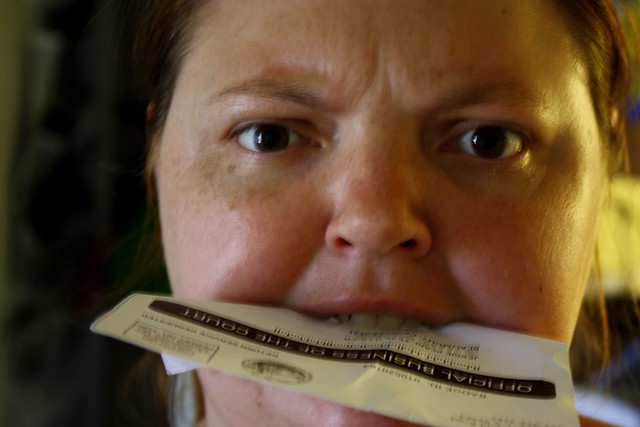Jury Duty and the LSAT
It happens to the best of us, and even to me: I was called for jury duty last week and I had already used my get-out-of-jury-duty-for-free passes. So, off I went to the New York County Courthouse to wait out my two days of not being called to a case (I’ve done this before). But it turns out I was actually selected! While almost everyone there complained, it was actually a fascinating experience, and, among other things, it reinforced for me why the LSAT is so predictive of one’s performance in law school: it actually tests many of the skills that lawyers use (though, it became clear, not all of them).
It all began with Voir Dire – and if you’re a true LSAT geek, you are thinking of that one RC passage about Voir Dire and exposure to the media. Voir Dire is a fancy way of saying jury selection. The lawyers asked us questions and flicked us off the jury depending on our answers, biases, etc. We were quickly informed that this would be a personal injury case. That immediately made me think of those commercials – like Saul in Breaking Bad. Or this commercial. We were asked whether we worked for the subway — ah, someone got hit by a subway?! – and whether we knew some guy. And have we been in a personal injury case before? Oh, your mother was? What part of her body was injured? Oh, her nose…
It started to become apparent – some guy broke his nose on the subway. Ouch.
The plaintiff’s lawyer was making his way down the line of jurors, and he finally got to me, juror #10. Did I feel I could rule fairly? Sure! Did I think I could come up with a decision that both the plaintiff and defendant would be happy with? Now think about that question for a second…No, I told him, I couldn’t – it’s a court case, not a mediation! I figured at that point I’d be dinged – I was poking fun at the plaintiff’s lawyer, and I told him I teach the LSAT. Shouldn’t that make him wary of me? Perhaps – as is true – I’d be thinking all the time about how the case relates to the LSAT.
Then it was time, as it often was, for a break. When we returned the lawyer asked me whether I had any new thoughts now that I had had a break and time to consider. I told him that I felt our society was too litigious – there are simply too many lawsuits. He agreed (probably he delights in the fact) and asked if you find that my client was harmed and you calculate a sum that he deserves and it turns out to be exorbitant, would you be OK making that decision – to decide that my client should receive that amount? Well, that’s a strange question! If the amount is exorbitant, why would I be OK with it? But, as I told him, if his client deserved a certain amount, I would give him that much.
I tried to tell the lawyer – “I hate the fact that people sue for minor injuries all the time – I think it’s a crime against society that you can sue for spilling hot coffee on your lap and I won’t award your client diddly-squat unless he clearly was hit by a subway driven by a drunken conductor” – but he didn’t seem to hear me. After another long break – actually it was a long period of us all waiting for the lawyers to return from who-knows-where – I found out that I had been selected.
What was interesting to me was that the lawyers were already trying their cases during Voir Dire. They were trying to make us like them (clearly the plaintiff’s lawyer wasn’t doing a great job). Also, they were already starting to argue with each other. When the plaintiff’s lawyer asked me if I’d be OK awarding money to his client, the defendant’s lawyer chimed in – “if the evidence suggests that it is warranted.” These lawyers were listening like hawks to each and every word the other said – similar to the way we have to read questions on the LSAT. This was something that became increasingly apparent as the case continued.
One last note about the beginning of this experience (and by the way, the case is already done – I wouldn’t blog about an ongoing trial). Right from the beginning, every single possible juror took the process seriously – from the goose-bump raising oath to the questions about our biases and injuries. Even though people didn’t necessarily want to be selected, they seemed to answer honestly. It made me proud to be part of this society.
